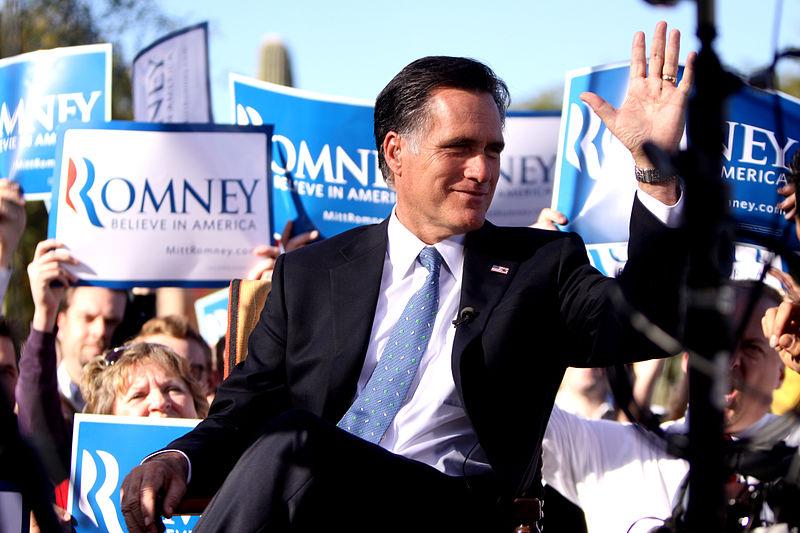VIDEO: Former Bain Capital executive defends Romney’s CEO record
Mitt Romney won the Florida primary handily on Tuesday. (Photo by Gage Skidmore via Wikimedia Commons.)
A former managing director at Bain Capital, the private equity firm founded by Mitt Romney, says the controversy over Romney’s history at the company overshadows more important presidential campaign issues.
“I do think that this is a tactic to divert from what’s important in the election,” said Edward Conard, Romney’s former partner. “I think the underlying story here is not nearly as interesting as everybody wants to make it out to be.”
Romeny and his supporters have voiced similar concerns about the growing outrage over his tenure at Bain Capital. Romney, the likely Republican presidential nominee, gave five television interviews Friday in which he demanded an apology from President Barack Obama for his relentless attacks on his business record.
But the Obama campaign has showed no signs of letting up. One of its most recent ads jabs Romney for shipping American jobs overseas and hiding his personal wealth in offshore bank accounts.
“Mitt Romney’s not the solution. He’s the problem,” the ad says to a soundtrack of Romney singing “America the Beautiful.”
Obama has even made Romney’s history at Bain Capital a central talking point on the campaign trail.
“He invested in companies that have been called ‘pioneers’ of outsourcing,” the president said Saturday at a campaign event in Virginia. “I don’t want a pioneer in outsourcing. I want some insourcing. I want to bring companies back.”
The Obama campaign’s barrage has put Romney on the defensive, forcing him to clarify his past relationship with Bain Capital.
Romney says he left the firm for good in 1999, two years before a Kansas City steel mill under the firm’s control filed for bankruptcy, leaving hundreds of workers unemployed. The story of GST Steel has been a major component of the Obama’s criticism of Romney’s economic credibility.
In 1999, Romney left Bain Capital to run the 2002 Salt Lake City Winter Olympics. But the Boston Globe reported a number of interactions between Romney and Bain that indicate he remained involved with the firm in a significant way. He earned money from the firm as an executive, separate from investment earnings, and a number of news sources described his departure as a part-time leave of absence instead of a permanent exit.
Conard said Romney’s departure came during a major restructuring at the private equity firm that took a while for the company’s executives to “untangle.”
Even though Romney’s name remained on the firm’s books as one of the managers as late as 2002, Conard contends Romney wasn’t involved with any decisions made at that time, including the decision to scuttle GST Steel.
“I would tell you that the partners of Bain Capital were making investment decisions without Mitt’s input,” Conard said. “I don’t think that anybody felt that they needed to call Mitt up and ask his permission.”
Every day, reporters and producers at The World are hard at work bringing you human-centered news from across the globe. But we can’t do it without you. We need your support to ensure we can continue this work for another year.
Make a gift today, and you’ll help us unlock a matching gift of $67,000!
